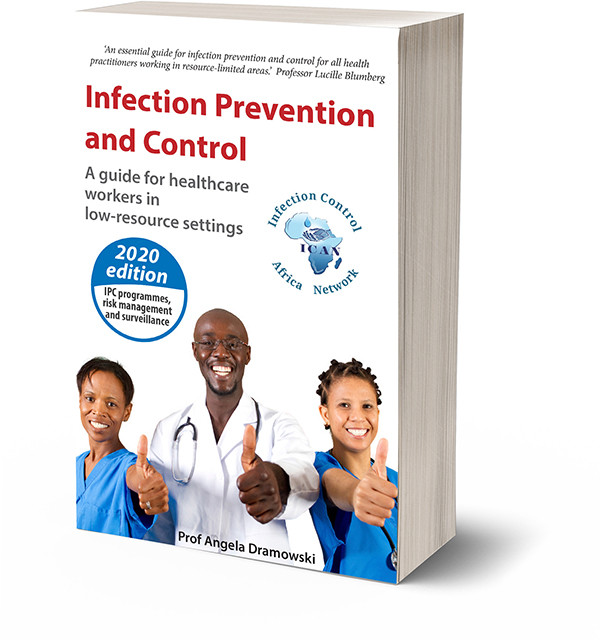Quiz 2: Family planning and infertility
Please choose the one, most correct answer to each question or statement.
- What is family planning?
- Having a planned pregnancy
- Using contraception to prevent an unplanned pregnancy
- Providing treatment to an infertile couple
- All of the above
- Should male partners be involved in contraceptive counselling?
- Yes
- Only if the couple wants to use condoms
- Only if they are married
- No, as contraception should be a woman’s responsibility
- By when should most women expect to fall pregnant if they are having regular, unprotected intercourse?
- Less than 3 months
- Less than 6 months
- Less than one year
- Less than two years
- How should contraceptive counselling be provided to a woman?
- She should use the method that the healthcare worker thinks is best for her
- She should be told which methods to avoid as they have the most side effects
- She should be told to use the method that has the lowest failure rate
- She should be fully informed so that she can make the best choice for herself
- What natural methods of contraception are reliable?
- Breastfeeding
- The ‘safe period’
- Coitus interruptus (withdrawing)
- None of the above
- What are combined oral contraceptives?
- Both the man and woman use tablets for contraception
- The use of a condom plus an oral contraceptive
- The use of both an oral and injectable contraceptive
- The use of an oral contraceptive which contains both oestrogen and progestogen
- Combined oral contraceptives are not recommended for:
- Teenagers
- Women aged 35 years and older who smoke
- Women who need a very reliable form of contraception
- Women with dysmenorrhoea
- What is a common side effect in women who start using combined oral contraceptives?
- Breast tenderness
- Heavy menstrual bleeding
- Weight gain
- Jaundice
- Progestogen-only oral contraceptives:
- Are taken for 21 days followed by a break of 7 days
- Are suitable for breastfeeding mothers as they have little effect on lactation
- Are recommended for women who are not able to take medication reliably every day
- Should not be used as they are not a reliable form of contraception
- Injectable contraceptives:
- Are given every 28 days
- Increase fertility when they are stopped
- Commonly cause mild menstrual abnormalities
- Increase the risk of sexually transmitted infections
- The copper intra-uterine contraceptive device (IUCD):
- Can cause copper poisoning if not changed every 3 years
- Is the best contraceptive method for teenagers
- Causes permanent infertility
- Is both safe and efficient for women of all ages
- Sterilisation is a suitable contraceptive method for:
- A young single woman who wants to be sexually active without having to worry about falling pregnant
- A young single man who does not want to worry about his girlfriend falling pregnant
- A 28-year-old married woman who says she has completed her family, having had two children with her husband
- A 36-year-old woman who says she has completed her family having had a single child with her husband
- What form of contraception is suitable for a 30-year-old unmarried woman who is HIV positive and on antiretroviral treatment?
- Sterilisation
- An intra-uterine contraceptive device (IUCD) together with condoms
- Condoms only
- Combined oral contraceptive pills
- Emergency contraception:
- Can be recommended to women instead of regular contraception
- Is only effective if given within 24 hours of unprotected intercourse
- Is provided in the form of tablets containing progesterone only
- Is dangerous and should not be recommended
- How is infertility diagnosed?
- By measuring the serum hormone concentrations
- By vaginal examination
- By taking a history
- By special gynaecological tests
- Why is infertility important?
- Because it is a natural way of controlling the size of families
- Because is causes suffering
- Because it places a strain on government funds
- Infertility is not important in Africa
- Is infertility common?
- Yes, as 10 to 15% of couples suffer from infertility
- Only in women who have had a sexually transmitted infection
- Only in women over the age of 38 years
- No
- A common cause of infertility is:
- Blocked fallopian tubes
- Monilial vaginitis
- A previous miscarriage
- Endometriosis
- What fertility advice should be given to infertile couples?
- Women who are overweight or obese should lose weight
- Men who smoke should stop smoking
- Women who are trying to fall pregnant should take 5 mg of folic acid daily
- All of the above
- An infertile woman should be referred to a specialist clinic:
- Only if she is legally married
- Only if she is in a heterosexual relationship
- If she has tried to fall pregnant for a year or longer
- If she has no living child

